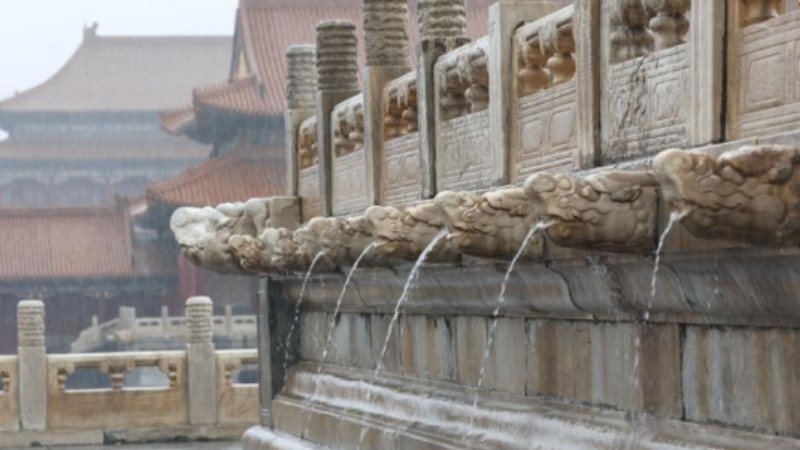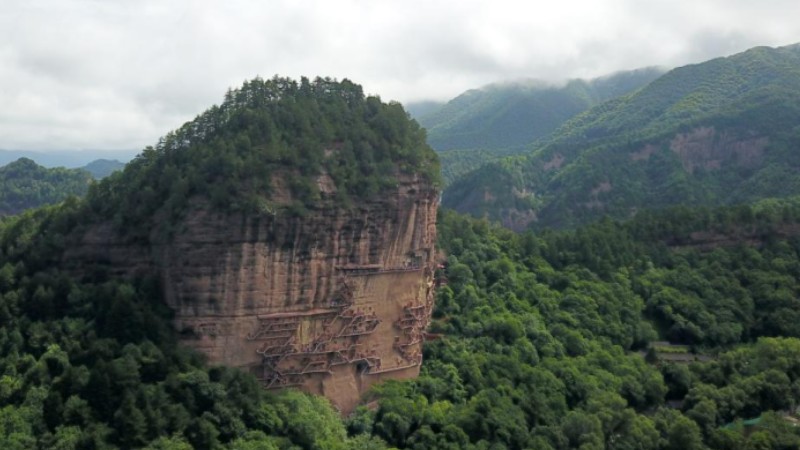Greater Eurasia stable amid the surrounding crisis

SONG CHEN/CHINA DAILY
Despite the Russia-Ukraine conflict and the confrontation between Russia and the West, Greater Eurasia has remained relatively stable, contrary to expectations that the region would be embroiled in conflict and wracked by instability. It wouldn't be an exaggeration to say that a confluence of geographical, political, institutional and economic factors has made Greater Eurasia resilient to the intensifying major power competition around the Greater Eurasian region.
First, the core of Greater Eurasia is geographically removed from the primary theaters of confrontation between major powers. While Eastern Europe and the Baltic states are situated on the front lines of the de facto conflict between Russia and NATO, the Central Asian countries, Mongolia and most of East Asia are removed from these geopolitical flashpoints. Their distance from the theaters of confrontation buffers them from the worst destabilizing effects of the great power rivalry centered in Europe.
Second, most states in Greater Eurasia are politically stable and resilient to radicalization. While China and Russia suppress any separatist and extremist movements within their borders and the Central Asian countries have mechanisms to prevent external forces from fomenting trouble within their borders, Mongolia has a stable government, and the Republic of Korea and Japan, as mature and liberal countries, are resistant to extreme political movements. The stability of the region's countries insulates Greater Eurasia from disruptive spillover effects of conflicts outside the region.
Third, regional institutions such as the Shanghai Cooperation Organization and the Eurasian Economic Union have proven more resilient than European blocs and organizations like the European Union and the Organization for Security and Co-operation in Europe to external geopolitical disputes. The SCO and the EAEU are pragmatic organizations and were built based on the core security and economic interests shared by the member states, rather than on self-proclaimed values or political ideals which can be undermined by interstate conflicts. Their solid issue-based foundation enables them to weather geopolitical storms.
Fourth, economic forces, especially market forces, act as a stabilizing factor for Greater Eurasia so long as they are not excessively constrained by political disputes. China, Russia, and the countries of Central Asia and the Caucasus region stand to economically benefit from increased trade, investment, infrastructure and connectivity in Eurasia. These mutual economic interests and incentives help transcend political divides and foster beneficial interdependence.
Even South Caucasus, typically considered Greater Eurasia's most volatile sub-region, is shaped more by local dynamics than by the broader global power contest. Regional powers such as Turkiye and Iran play a bigger role in the region's affairs than alien major powers. And differences and disagreements, if any, remain localized and contained rather than escalating into wider destabilizing interstate conflicts.
Moreover, the institutions of Greater Eurasia were established under different historical and geopolitical conditions than Western blocs and organizations such as the EU and the OSCE. The SCO doesn't have the complex balance of power politics that has traditionally defined the OSCE. Similarly, the EAEU does not attempt to forge an intricate equilibrium of diverse interests that defines the EU. It is the pragmatic institutional design centered on the core interests of the region's countries that makes Eurasian organizations result-oriented and resilient to external pressures.
Also, economies across Greater Eurasia depend relatively less on external political factors, despite not being totally immune to global shocks. As a result, intra-regional economic integration and domestic development, not reliance on external markets, drive their economic growth. And it is this economic self-sufficiency that gives them stability.
True, stability in Greater Eurasia cannot be taken for granted forever, but objective geographical, political, institutional and economic factors make the region more stable according to standard international relations theories amid the intensifying major power competition. The region's stability will depend on how long the buffering factors can withstand the increasingly volatile global environment.
Preventing the emergence of a stable order in Eurasia has always been the US strategic goal by the end of the World War II. Therefore, maintaining stability and peace in Eurasia is fundamental to the interests of world peace and development. Eurasia accounts for a significant share of the world's population and economy. If conflict and confrontation take hold, it would not only hamper regional development but also impact the entire world. Thus, countries should look beyond differences, enhance mutual trust and cooperation, and enable Eurasia to become an important driver of world peace and prosperity, rather than a hotbed of conflict. Only in this way can all humanity share in development opportunities and work together to create a better future.
The author is a Beijing-based commentator on international affairs. The views don't necessarily reflect those of China Daily.
Photos
Related Stories
- SCO advancing unity, coordination to realize greater development
- China plays important role in forging SCO cooperation for security, prosperity -- Turkish experts
- SCO demonstration base for agricultural technology builds better platform for agricultural exchange
- Iranian president, FM hail Iran's full SCO membership
- New Delhi Declaration issued at SCO summit
- Commentary: Unleash SCO's potential for fostering global security, prosperity
- Interview: SCO summit to deliver important messages on regional, global development, says expert
- SCO member states to further strengthen solidarity, cooperation for peace, development
- Interview: Middle Eastern countries keen to join SCO to achieve peace, development -- Egyptian expert
- China commits to building closer SCO community with shared future
Copyright © 2023 People's Daily Online. All Rights Reserved.









